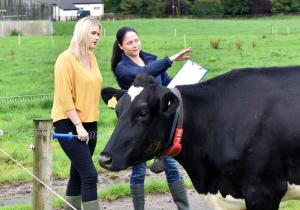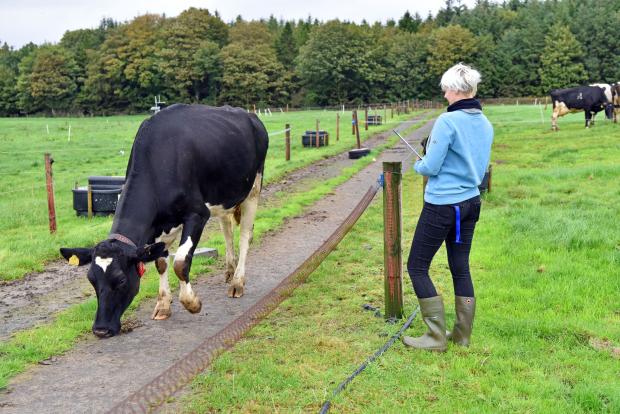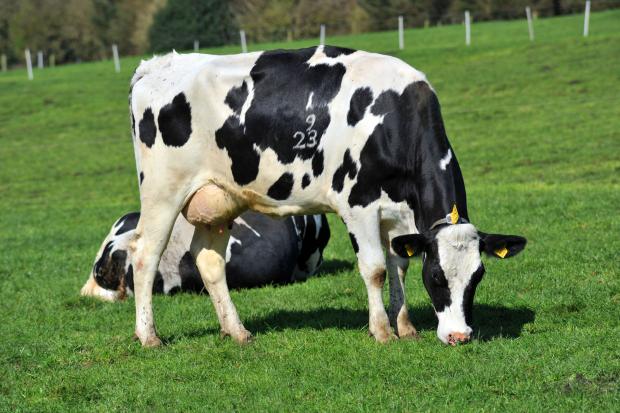AFBI wants to hear from you!
Date published:
Automation is on the rise on Northern Irish dairy farms. For instance, in 2018 10% of the national herd was already managed within automated milking systems. This is expected to rise further in the future.

Background
Automation of routine farm tasks like milking, has the potential to reduce labour whilst increasing productivity and detection of specific welfare problems. However, these potential benefits are not always achieved to the fullest for a variety of reasons. One main concern is that as automation takes over daily tasks on the farm, this reduces the amount of time that the farmer spends out with the herd. In turn, this could mean that issues that aren’t monitored by the automated technology may go unnoticed more often. Whether this happens or not is greatly dependent on how farmers choose to spend the time that is freed up by the automation.

Assessing the effects of automation on NI dairy farms
In the AUTODAIRY project, AFBI will study the effect of automation on a range of commercial farms. Commercial farm insight is essential, as the effects of automation depend on how the farmer interacts with the system. As mentioned previously, this includes how the farmer chooses to spend the time that is freed up. But another important element is how effective farmers are in interpreting the alerts sent out by automated technologies, and if they are able to effectively follow up on these alerts by taking the necessary steps to actually solve the problem.
The project will not only provide information on how effectively automation is currently implemented in the NI dairy sector, but also aims to identify what the barriers to successful implementation are.
Call for farms to participate

For such farms results before the installation are then compared to those of a second set of visits after the installation, to see how the farm evolved.
By participating, all farmers will gain clear insight in their farm’s strengths and weaknesses regarding cow welfare, labour patterns and productivity, as they will be able to compare their own results to that of other (anonymous) farms. They will also receive £100 per full visit by the AFBI staff. In addition to the direct benefits for the participating farms, this project will generate scientific knowledge to future-proof the Northern Irish dairy industry, thus benefiting the sector as a whole.
Farm visits
Participating farms will be visited by AFBI staff on agreed dates. During the visits, the staff will carry out an assessment of the herd’s health and behaviour using the Welfare Quality protocol. This is an internationally recognized scientific assessment protocol that covers many different aspects, for instance assessing lameness, disease symptoms, and how the cows behave towards other cows and humans. Farmers will be asked to provide information on the time spent on different activities, their skills, production data and veterinary care.
Anyone who is interested in learning more about the project, or would like to participate, is invited to contact Laura McAnally (email: laura.mcanally@afbini.gov.uk, phone: 028 9268 1573)